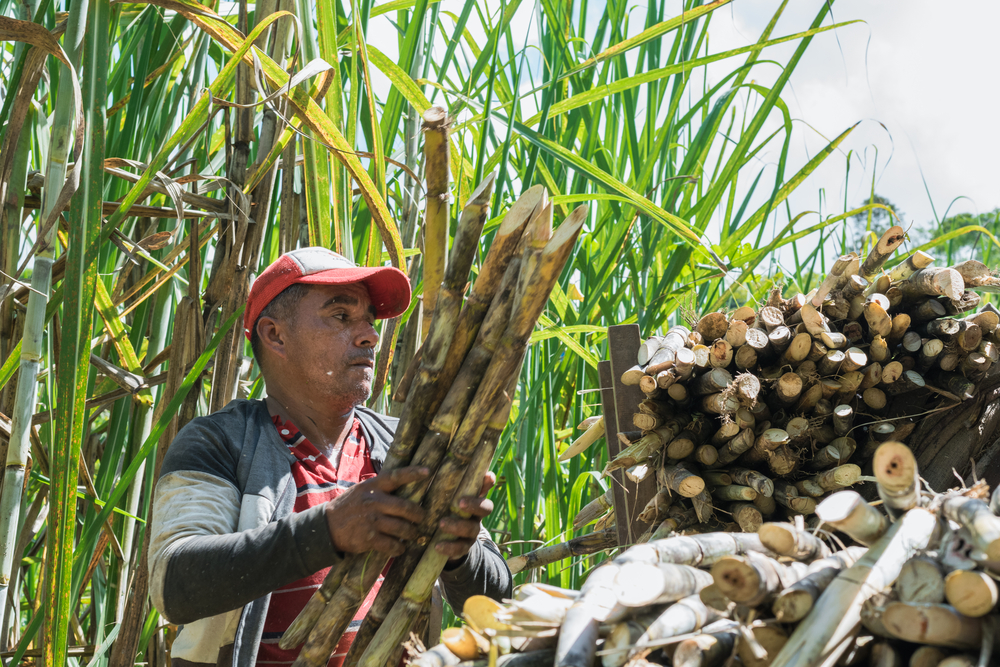The legislation was drafted following a process of analysis and participatory dialogue with all the sector’s public and private stakeholders. The process took more than two years to complete, with the IICA playing an important role.

San Jose, 17 January 2023 (IICA) – Panama will take a big step towards making its agricultural production more sustainable when President Laurentino Cortizo Cohen ratifies the new State Agri-Food Policy Act, regarded as a key instrument for ensuring both the development of the productive sector and the Panamanian people’s right to food.
The legislation was drafted following a process of analysis and participatory dialogue with all the sector’s public and private stakeholders. The process took more than two years to complete, with the Inter-American Institute for Cooperation on Agriculture (IICA) playing an important role.
The law, which Panama’s National Assembly approved in October, will be ratified by President Cortizo, accompanied by the Minister of Agricultural Development, Augusto Valderrama, the Minister Counselor for Agricultural Affairs of the President’s Office, Carlos Salcedo, and the Director General of IICA, Manuel Otero, as well as other officials and representatives of international organizations.
The ceremony will be held as part of the 62nd Tourism and Agricultural Fair of San Sebastián de Ocú, in the Panamanian province of Herrera.
President Cortizo issued a special invitation to the event to the head of IICA. The international organization specializing in agricultural and rural development was heavily involved throughout the process of wide-ranging discussions and the construction of the agri-food policy set out in the new legal instrument.
Composed of ninety-one articles, the Act aims to create the conditions for the technological transformation of agriculture and the affirmation of its role as a driving force for the Central American country’s economic and social development. To that end, it establishes guidelines related to productivity, competitiveness, food sovereignty and legal security, and adopts an inclusive, territorial and sustainable approach, designed to create jobs and promote the rural economy.
Agriculture, a State priority
Under the Act, national agricultural production is declared to be a State priority, given the key role it plays in ensuring the country’s social, political and economic stability, and the people’s right to adequate food.
The objectives established in the Act include strengthening agricultural policy through the incorporation of science and technology, and tackling the effects of climate change. Emphasis is also placed on the fact that agricultural production is essential not only for food production, but also for improving the living conditions of peasant and indigenous populations in rural areas.
Under the legislation, the Ministry of Agricultural Development, working with the Ministry of Economy and Finance, is tasked with drafting the National Agricultural and Rural Sector Development Plan, which will chart the course of agriculture for at least the next ten years. Some of the objectives that will be included in the plan are improved living conditions for rural dwellers; the promotion of competitiveness; the efficient management of rural territories; and efforts to encourage the implementation of climate change mitigation and adaptation measures.
The Act also calls for the creation of a Council to Monitor Implementation of the State Agri-Food Policy, a consultative body that will comprise 27 members, 19 from the private sector and 8 from the public sector.
To ensure that the most vulnerable segments of the population are included, the legislation establishes that all agricultural policy instruments are to make young people, rural women and family farmers a special focus of attention.
“This is a historic piece of legislation that reflects agriculture’s importance as a core activity for our countries’ food security and the well-being of rural dwellers, and to ensure social peace,” Manuel Otero observed.
The Director General of IICA, who will travel to Panama to attend the ceremony in which President Cortizo will ratify the Act, added that: “Panama’s State Agri-Food Policy has been designed following a broad, intensive process of dialogue involving a large number of stakeholders. It demonstrates the importance of governments and the private sector joining forces to work together.”
“Panama,” he concluded, “has decided to give agriculture a horizon of predictability, with policies that guarantee sustainability and create the conditions for the sector to realize its full potential. IICA is proud to have played a central role in this process, which underscores the importance of our institution for rural development in the countries of the Americas.”
More information:
Institutional Communication Division.
comunicacion.institucional@iica.int











